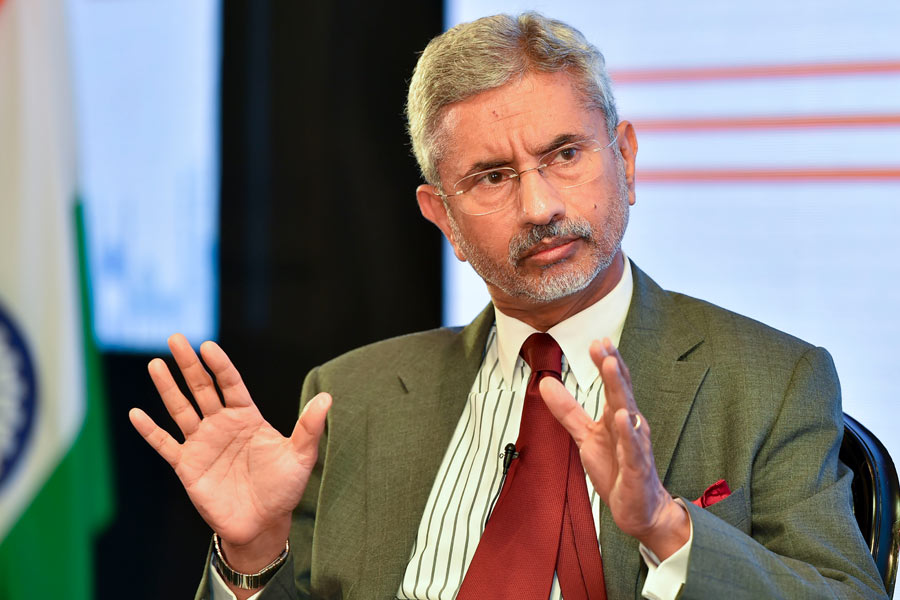Nearly a year into the second intifada, the Palestinian leader, Yasser Arafat, decided to fly to Asian nations to lobby for support for peace talks with Israel. The Palestinian uprising had begun in September 2000 after the then Opposition leader of Israel, Ariel Sharon, made a provocative visit to Jerusalem’s Al-Aqsa Mosque. Israel’s military response, typically heavy- handed, had left hundreds of civilians dead, including many children.
Arafat chose India as his first destination, before then flying to Pakistan and China. Beijing had a permanent seat on the United Nations Security Council; New Delhi did not. Islamabad was thick with Arab capitals that were Palestine’s most vocal supporters; New Delhi was not. Yet, Arafat and the broader Palestinian movement knew India had a moral standing in the developing world that neither China nor Pakistan could match. India knew that its clarity on the rights of Palestinians to justice, peace and a nation state of their own — as accepted by the United Nations — was a cornerstone of New Delhi’s post-colonial credibility in the Global South.
More than 20 years later, that clarity has vanished at a time the world is confronting fundamental questions over the future of Palestine and Israel’s illegal occupation of Palestinian territories with an urgency unseen in decades.
Last week, 52 countries delivered presentations before the International Court of Justice in The Hague after the UN General Assembly sought its view on the legal consequences of Israel’s occupation. Most firmly backed the Palestinian position. Some, like the United States of America, aligned themselves with Israel. From China to Colombia, Brazil to Bangladesh, Indonesia to Iran, and South Africa to Sudan, countries from the Global South sought accountability for Israel’s violation of the UN Charter and international law.
Many of these are countries that, like India, have important relations with Israel. Brazil was president of the General Assembly when the UN partition plan that led to the creation of Israel was introduced in 1947. South Africa is by far Israel’s biggest trading partner in Africa. Yet they haven’t hesitated to criticise Israel: Tel Aviv has declared the Brazilian president, Luiz Inácio Lula da Silva, persona non grata after he accused Israel of genocide, a charge that South Africa has brought before the ICJ.
India, on the other hand, has behaved like a rabbit caught in the headlights of high-stakes geopolitics.
The external affairs minister, S. Jaishankar, and the government of the day often claim that India has adopted a bold foreign policy under Prime Minister Narendra Modi. On the question of Palestine, nothing could be further from the truth. Even the US and the United Kingdom, firm supporters of Israel, have criticised its murderous military machine for excessive killings. India has sheepishly tried to avoid commenting on the crisis at all.
To be clear, India need not echo the views of Brazil, Indonesia, South Africa or China. It can condemn both Hamas’s killings in Israel on October 7 and Israel’s subsequent massacres. It can unambiguously call on Israel to end its occupation of the West Bank and East Jerusalem, while making clear that Israel has a right to secure its existence as a sovereign State within internationally accepted borders.
But when India, which insists that it is a flagbearer of international law, absents itself from hearings at the world’s top court into one of the most egregious and longstanding violations of the UN Charter, how should the Global South interpret its decision?
Perhaps the violation of international law, occupation and mass killings of civilians in Palestine don’t matter enough for New Delhi to take any position before the ICJ. Or perhaps India is too scared to take a stand, unsure of its ability to articulate a nuanced position convincingly.
Either way, the next time the leader of an occupied nation seeking the Global South’s support plans an itinerary of capitals to visit on priority, New Delhi might not make it to the shortlist.
Charu Sudan Kasturi is a senior journalist who writes on foreign policy and international relations











